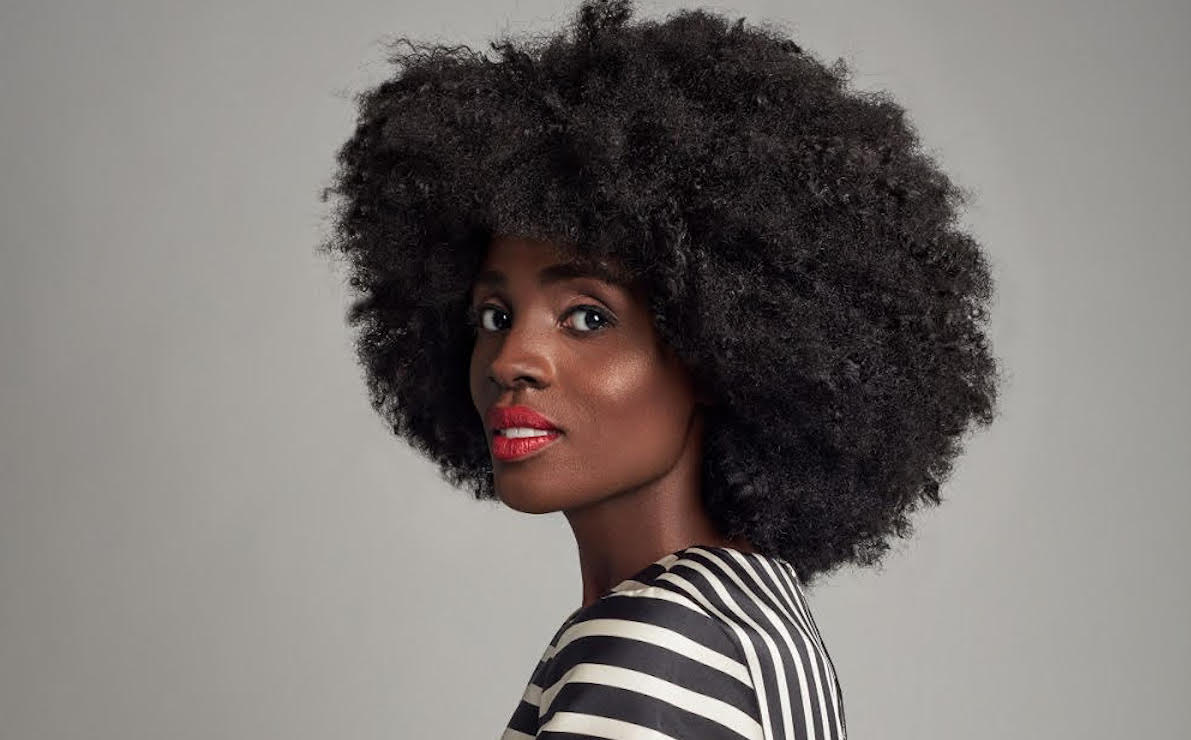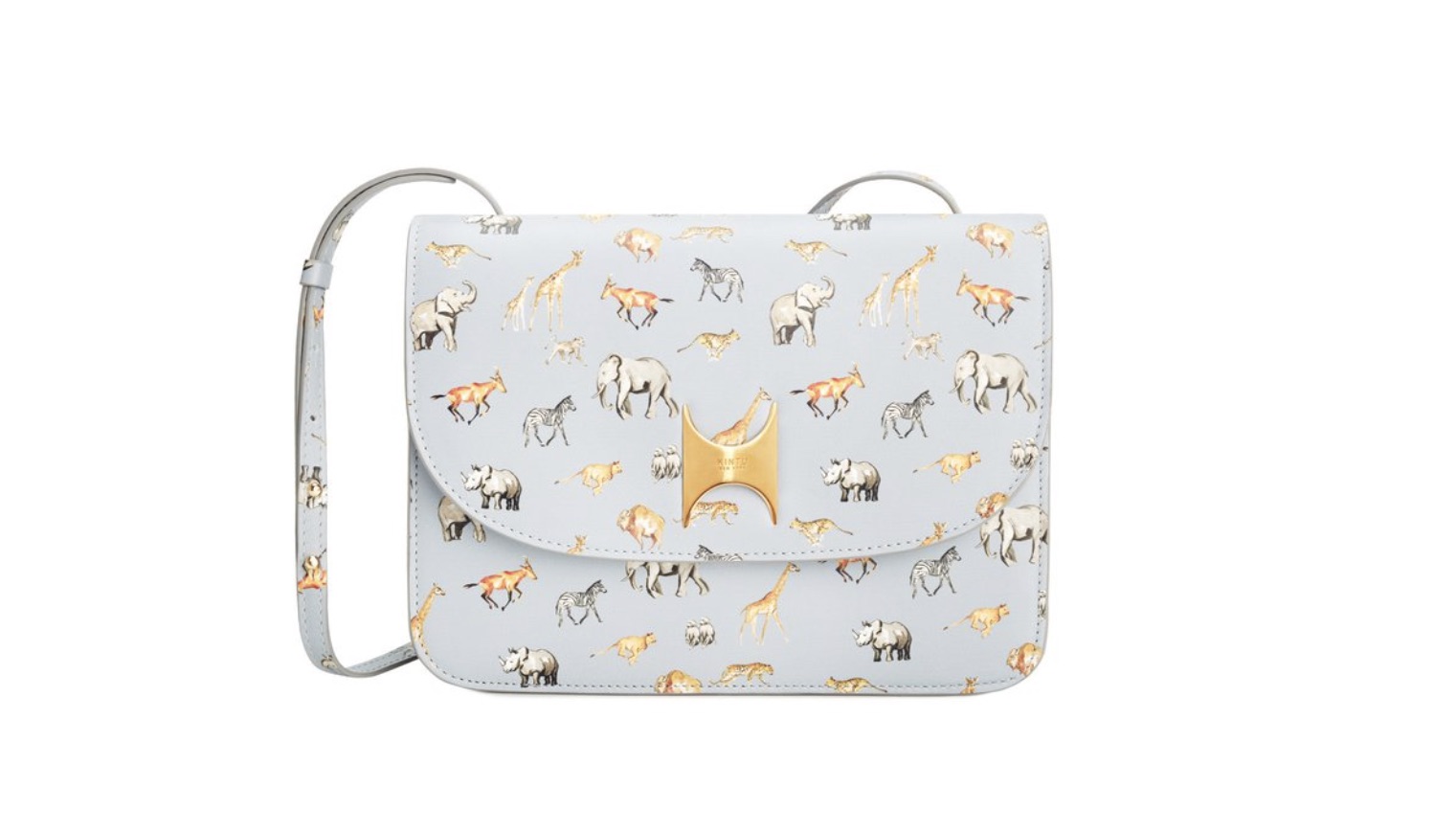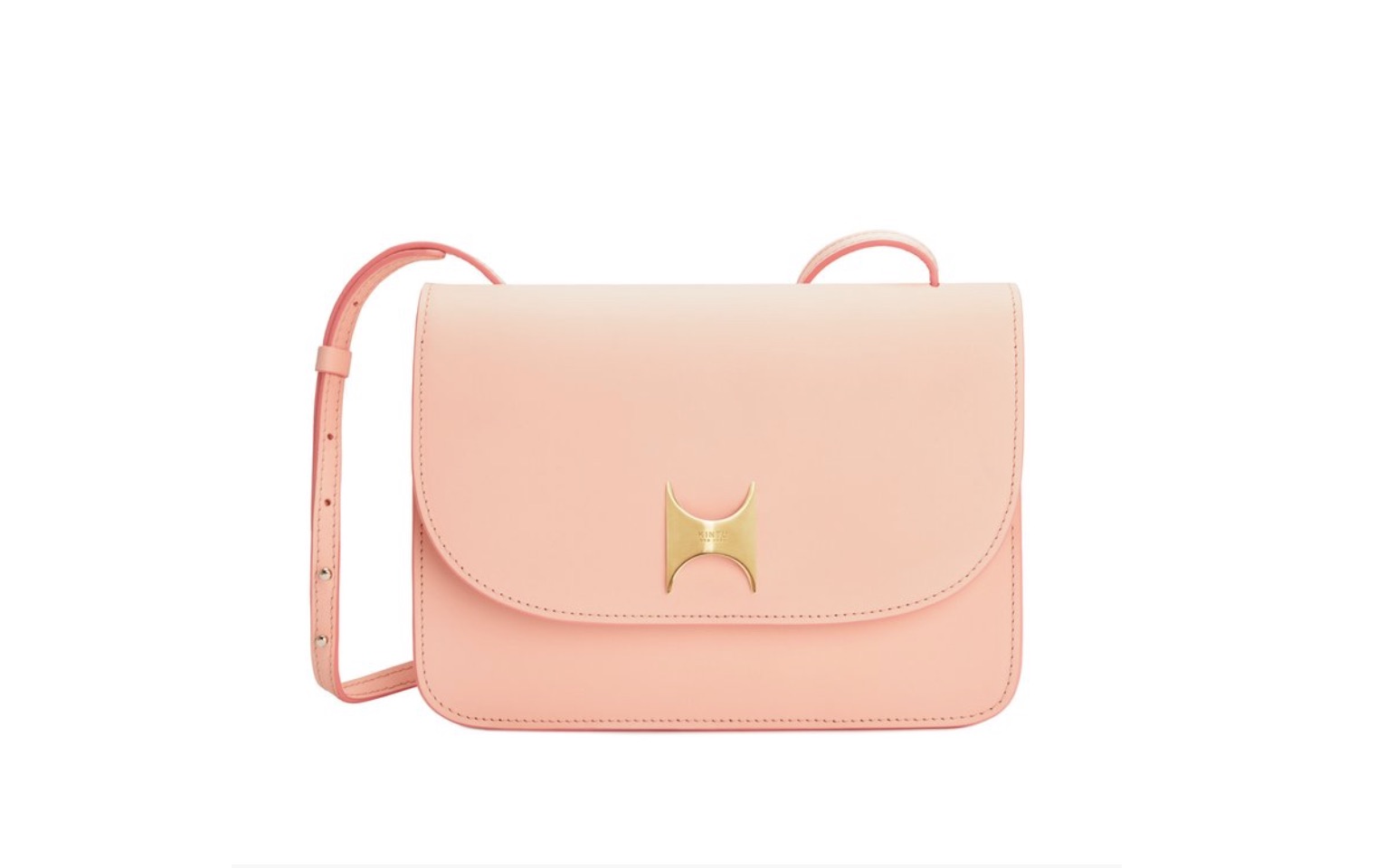
Why Sarah Nakintu Wants to Bring Craftsmanship Back to Fashion
June 25, 2018
Rana Good is the founder of Naïra NYC. A writer for publications such as Forbes, Travel + Leisure, Coveteur, Mens Journal and others, she created her own platform celebrating women of color.
Every day fast fashion seems to be getting faster — retailers like Zara and H&M are producing clothes at lightning speed, new Internet “retailers” are flooding our social media feeds with impossibly cheap garments, and trends are here one day and gone the next. That’s why handbag brand Kintu New York feels like a breath of fresh air. Kintu combines the craftsmanship of Italian leather-makers with the handicraft of Indian artisans and hardware from Kenya to make beautiful bags. We spoke to founder and creative director Sarah Nakintu about how she manages a company that truly spans the globe and what it means to create something fully handmade.
What inspired you to create Kintu?
Sarah Nakintu: As a fashion consumer I wanted to start a line that has its roots in artisanship. I felt like the ideal of handmade is going away quickly. I wanted to create something with artisans that’s inspired by all the places I live in and traveled to, for example New York City or Zurich. The idea was to create an amazing line for women in a good price range. I wanted people to know who made their bag, why it costs what it costs, and know why it’s special and truly handmade.

Why do you want to preserve artisanship?
I grew up in Uganda and we handmade everything! I didn’t have Barbie dolls, we would literally make dolls out of what we had. Around Christmas time we would pick materials and make dresses. I also grew up going to an amazing second-hand/vintage market, so for me I’ve always had a special relationship with clothes and items. I always loved looking at the finishes of things and how it was made. I think knowing that someone made the thing you’re holding is the greatest love of all. There are a lot of brands that machine-make things and say it’s handmade, and I don’t like that because it’s not transparent. I want to make sure we preserve the specialness of handmade.
How do you feel about fast fashion?
I’ve been thinking about this a lot. The truth is fast fashion is bad for the environment, the people who make the clothes are not treated or paid well, the supply chain is lacking, there are a lot of chemicals in these clothes and they are not well-made. At the same time, I’ve lived in New York and it’s one of the most expensive cities. There’s a girl who’s paying high rent and her student loans – we need to create an option for people that’s attainable but not fast. If we can’t do that we have a challenge. Zara is always full because their items are cute and affordable. I don’t like fast fashion but I also don’t think we have a good alternative right now. I would like to make these companies more accountable. H&M has a conscience project but at the same time they have a 1.6 billion clothes in their inventory. That’s not okay. Should they produce less? I don’t need a new top every day, for example. These companies have a lot of money so I don’t think it’s possible to fight them, but it is possible to hold them accountable.
A lot of fast fashion brands have short-lived collaborations with designers. What do you think about big fashion houses partnering with smaller brands?
It depends. What’s been happening is that big fashion houses rip off a design from a smaller designer and then they have to partner with them because someone called them out on social media. For example, with Dapper Dan, Gucci ripped of his designs so many times and now they had him create a Gucci store. We have to look at the underlying idea of why they are partnering with smaller brands. Is it to usher in new designers? Or is it to appear good to the public? I know with big fashion houses it always comes down to profit, but it’s nice to know that some brands are willing to nurture new designers and open that door.

Your brand is named after your dad, can you tell me more about that?
Yes, my grandfather was Kintu and then my dad was Kintu and in Uganda Nakintu, is the daughter of Kintu. My dad sacrificed so much – he sent 56 people to school that are not just our family. I remember when I was growing up, we would be driving and my dad saw this girl selling fruit who was my age. He bought fruit and asked her “why are you not in school?” She said “because my parents can’t afford to send me, so I have to work.” My dad asked if her parents were home and she said yes, then he made a deal with them saying “look, I will pay all the school fees you just need to get her books and pens, deal?” She became one of the 56. I just wanted to give him the honor of naming a brand that could be global after him. I told him I was starting a brand and when I went to Uganda I brought him a bag. He said “let me look at it,” looked at the name and said “I’m so proud of you.”
What are the upsides and downsides of being such a global brand?
It’s very expensive and fashion moves quickly. Our production was delayed for six months at one point. We love to say “there’s no hurry” in Africa so when you say something needs to be done and they say two weeks, you should probably count four weeks. Same in Italy. It’s challenging because we’re a small brand. Also, we have to compete with big brands because they will approach artisans and since they request so much volume they’ll probably give faster service to them. Money and time are the most challenging aspects. The positives are when you look at our brand you see a global product – the hardware is from Kenya, the bag was stitched in Italy and parts of it were made in India. I think it’s made with love from different regions from the world. You have world leaders calling countries “sh*tholes” but when you can see what people make in these countries with their hands, it’s amazing.
What’s next for your brand?
We’ve been in a few stores in Europe and the Middle East. What’s next for our brand is that we’re going direct to consumer. I really liked doing retail in the beginning, but now we want to control our own narrative and get closer to our customer. Everything is sold online at Kintu New York and we have a few trunk shows coming up. I hope to meet more women and buyers in person this year.